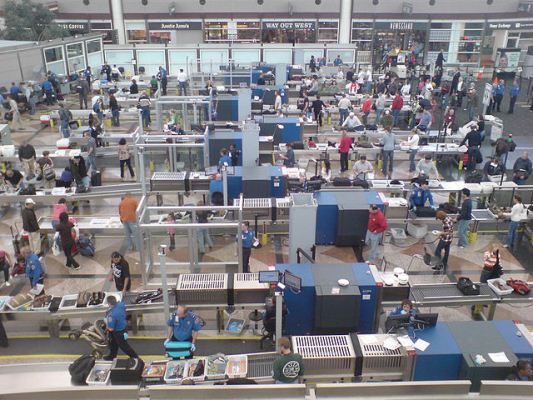 The U.S. Department of Homeland Security (DHS) has recently announced the imposition of enhanced aviation security measures for all international flights operating into the United States, citing continuing terrorist threats.
The U.S. Department of Homeland Security (DHS) has recently announced the imposition of enhanced aviation security measures for all international flights operating into the United States, citing continuing terrorist threats.
The new security measures will affect 105 countries, 280 airports, 180 airlines, 2,100 daily flights, and an average of 325,000 daily passengers.
DHS in a statement June 28 said it is “working to raise the baseline for aviation security across the globe by implementing enhanced security measures, both seen and unseen, at all last-point-of-departure airports in 105 countries around world.”
It said the United States and the global aviation community face an “adaptive and agile enemy.” “Recently evaluated intelligence indicates terrorist groups continue to target the aviation sector and are actively seeking ways to circumvent aviation security.”
The department said passengers flying to the United States may experience additional screening of their person and property. There are no changes to items allowed in carry-on and checked baggage.
“Aviation security enhancements will be implemented in phases over the next several weeks and months. While some will be required immediately, other measures will be implemented over time, in coordination with our international partners,” it added.
These heightened security measures include the following:
- Enhancing overall passenger screening;
- Conducting heightened screening of personal electronic devices;
- Increasing security protocols around aircraft and in passenger areas; and
- Deploying advanced technology, expanding canine screening, and establishing additional pre-clearance locations
Secretary of Homeland Security John F. Kelly in his remarks June 28 regarding the new measures said, “We will also lay out a clear path to encourage airlines and airports to adopt more sophisticated screening approaches, including better use of explosive detection canines and advanced checkpoint screening technology.
“Additionally, we will encourage more airports to become pre-clearance locations. This not only enhances security, it also increases convenience by allowing international travelers to go through Customs and Border security screening before boarding flights to the United States.”
He warned that “those who choose not to cooperate or are slow to adopt these measures could be subject to other restrictions—including a ban on electronic devices on aircraft, or even a suspension of their flights to the United States.”
AAPA calls for global cooperation
Meanwhile, the Association of Asia Pacific Airlines (AAPA) said the implementation of these new security directives by the U.S. government “will necessitate a number of procedural and operational changes by airlines and airports around the world.”
It appealed to airlines, airports, and relevant government authorities to work closely together to avoid unnecessary disruption to the traveling public.
Andrew Herdman, AAPA director general, added, “Aviation security is a collective global responsibility. We urge all governments, in conjunction with the International Civil Aviation Organisation (ICAO), to work together more closely with industry, and strengthen multilateral cooperation using a risk-based approach, focusing on globally agreed standards, and mutual recognition of respective security regimes.”
Photo: Danpaluska





